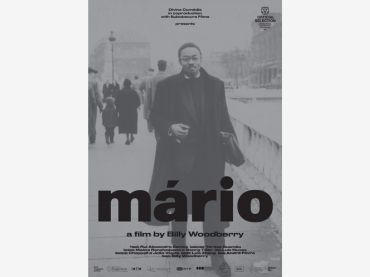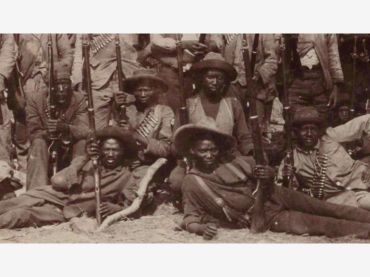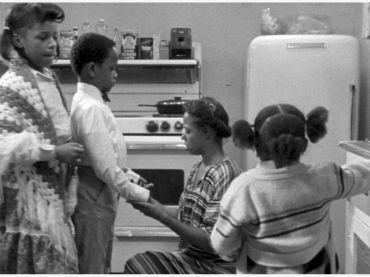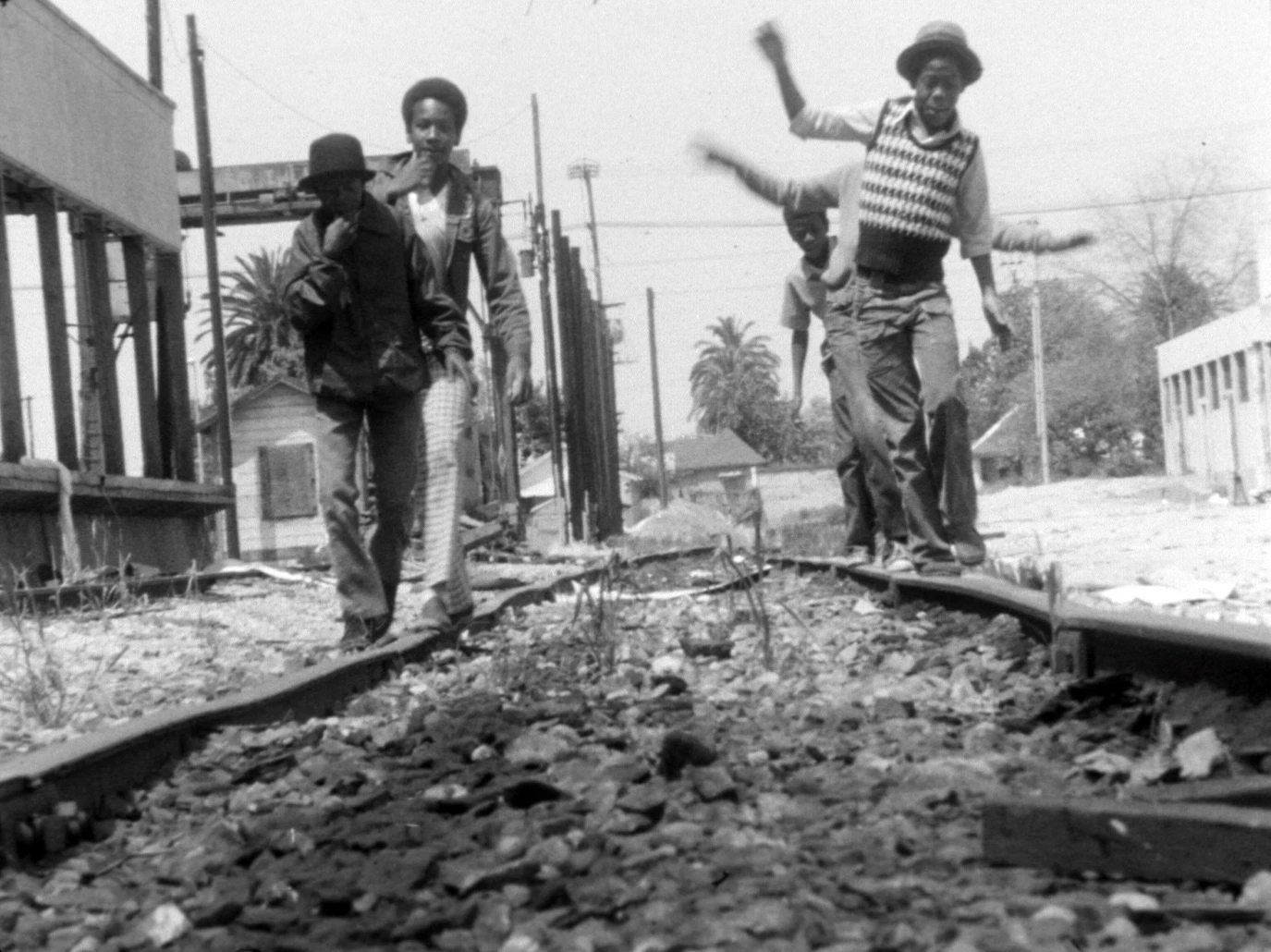-
Wednesday, 29 May 2024 Nouvel Building, Auditorium 200
Session 1
TicketsBilly Woodberry. Mário
USA, France and Portugal, 2024, b/w and colour, original version in Portuguese and French with Spanish subtitles, DA, 120’– Presented by Billy Woodberry
The Spanish premiere of Woodberry’s most recent film, Mário, which follows the tracks of revolutionary poet Mário Pinto de Andrade, an indispensable reference point in the anti-colonialist cause in Africa from the 1950s to the 1970s. Employing documentary, the film-maker unfurls in this film a striking audiovisual and photographic archive, carrying out a filmic and historical exercise in archaeology.
Mário explores the existential and political journey of a charismatic leader with unflinching resistance who devised a powerful and decisive pan-African theory to liberate different territories, interweaving other major figures such as António Agostinho Neto and Amílcar Cabral. The film underscores the need to forge solid foundations of thought to undertake the struggle and accomplish long-lasting objectives.

-
Friday, 31 May 2024 Nouvel Building, Auditorium 200
Session 2
TicketsBilly Woodberry. A Story from Africa
Portugal, 2019, colour and b/w, without dialogue, DA, 40’– With a lecture by Billy Woodberry
A handful of photographs, miraculous survivors of oblivion, constitutes the origin and sole material of A Story from Africa. The prints take us back to the times of the 1907 Portuguese Pacification Campaign in southern Angola to subdue the Kwamato tribe following on from the Berlin Conference (1884–1885), whereby European empires partitioned African territories.
The Portuguese Pacification Campaign was documented by Alferes Velloso de Castro, inevitably through a colonialist gaze, in his book A Campanha do Cuamato em 1907: Breve Narrativa Acompanhada de Photographias (Imprensa Nacional, 1908). Using this photographic record of the occupation, Woodbury uncovers the reaction of the Kwamato people to this Portuguese subjugation and conquest and the odd unexpected ally, for instance the nobleman Calipalula, a soba (traditional leader) who joined the Portuguese troops to defeat his rival tribe.

-
Saturday, 1 June 2024 Nouvel Building, Auditorium 200
Session 3
TicketsBilly Woodberry. Marseille après la guerre
USA and Portugal, 2016, b/w, without dialogue, DA, 11’Billy Woodberry. And When I Die, I Won’t Stay Dead
USA and Portugal, 2015, b/w and colour, original version in English with Spanish subtitles, DA, 89’Film-maker and activist Ousmane Sembène, a master of African cinema, is the subject of an emotive tribute in Marseille après la guerre, a film made up of photographs of Marseille’s docks taken in 1947. The images reflect the life and struggles of the dockers, exemplified in a strike led by African emigrants in which Sembène was involved. A reminder of the exploitation and racism that characterised colonialist France to understand the tensions that still flood its streets today.
The second feature And When I Die, I Won’t Stay Dead works again to bring back to life voices and events wrapped in collective amnesia. In this instance, it comes in the form of a homage to Bob Kaufman, a beat generation poet regarded as the “African-American Rimbaud”, whose life and work were surrounded by an aura of legend and fascination. Woodberry draws from the strummed rhythm of Kaufman’s poetry, entangled in wisdom and dread, and the coarse textures of celluloid to return to its rawest splendour the face and discourse of an irrepressible artist.

-
Sunday, 2 June 2024 Nouvel Building, Auditorium 200
Session 4
TicketsBilly Woodberry. The Pocketbook
USA, 1980, b/w, original version in English with Spanish subtitles, DA, 13’Billy Woodberry. Bless Their Little Hearts
USA, 1984, b/w, original version in English with Spanish subtitles, DA, 80’Billy Woodberry’s first work as a film-maker was the short film The Pocketbook, influenced by the story “Thank You, Ma'am” (1958), written by poet and novelist Langston Hughes. This short story on the awakening of consciousness centres on a boy compelled to commit petty thefts who, following a failed attempt to steal a woman’s purse, is taken aback by the understanding and support he receives instead of punishment. A fable with moral tinges and a profound humanist spirit that stresses the importance of giving second chances to young people staring into the abyss.
In his debut feature film, Bless Their Little Hearts, Woodberry explores the fractures of an African American family split by the existential crisis of Charlie Banks, whose wife takes charge of keeping the family afloat financially owing to his long-term unemployment. Dependency leads to frustration and opens the wound of his sullied masculinity as he resorts to infidelity as an escape from rage and desperation. A sentimental commotion which reflects the unstoppable spiral of self-destruction of a man tied to outmoded codes and the alienating contexts of the working class in Los Angeles.


Held on 29, 31 May, 01, 02 Jun 2024
The focal point of this film season organised by the Museo Reina Sofía and Documenta Madrid is film-maker Billy Woodberry (Dallas, 1950), whose filmography, despite comprising only a handful of works, is striking for its great political and creative intensity. Through his films, Woodberry unearths and probes episodes of history that have disappeared into obscurity, stressing that which official accounts deemed irrelevant to then place them under the spotlight, not solely from activism but also capturing their sensorial and poetic side.
Along with film-makers such as Charles Burnett and Haile Gerima, Woodberry was one of the founders of L.A. Rebellion, an African-American film movement, made up of students from the University of California (UCLA) in Los Angeles, which in the period stretching from the 1960s to the 1980s imagined an alternative scene to Hollywood, one which was sensitive to the real life of Black communities in the USA. He began by directing the short film The Pocketbook (1980), a clear-eyed account of learning via a young man who, after a failed robbery attempt, starts to question the route his life is taking. This was followed by his debut feature Bless Their Little Hearts (1984), which, drawing from neo-realism and Third Cinema film-makers, is an essential film of his generation centred on an African-American family who fall apart through the father’s struggle to find employment. With Charles Burnett as a screenwriter and cinematographer, the film was an award-winner at Berlinale and received widespread international acclaim. Nevertheless, Woodberry decided to relinquish his film-making to focus on teaching: he has taught at the California Institute of the Arts (CalArts) since 1989.
With the turn of the century, he decided to start from scratch and reinvent his practice, using audiovisual and photographic archive as the raw material of his work. Since that point, he has made documentaries evoking the memory of indispensable figures that shook up the artistic and political scene of African and African descent communities, for instance Ousmane Sembène in Marseille après la guerre (2005), Bob Kaufman in And When I Die, I Won’t Stay Dead (2015) and Mário Pinto de Andrade in Mário (2024). Thus, Woodberry’s film-making is a sensitive yet defiant perspective of the past, underscoring the persistence of traces of colonialism and inspiring to overcome them through figures who fought with actions, verses and images for freedom and Black identity.
Curator
Javier H. Estrada
Organised by
Museo Reina Sofía and Documenta Madrid (21st International Film Festival)
Más actividades

Aesthetics of Peace and Desertion Tactics
8 October 2025 – 24 June 2026
The study group Aesthetics of Peace and Tactics of Desertion: Prefiguring New Pacifisms and Forms of Transitional Justice proposes a rethinking—through both a theoretical-critical and historical-artistic lens—of the intricate network of concepts and practices operating under the notion of pacifism. A term not without contestation and critical tension, pacifism gathers under its name a multiplicity of practices—from anti-militarism and anti-war movements to non-violence activism—while simultaneously opening urgent debates around violence, justice, reparation, and desertion. Here, pacifism is not conceived as a moral doctrine, but as an active form of ethical and political resistance capable of generating aesthetic languages and new positions of social imagination.
Through collective study, the group seeks to update critical debates surrounding the use of violence and non-violence, as well as to explore the conflict of their representation at the core of visual cultures. In a present marked by rearmament, war, genocide, and the collapse of the social contract, this group aims to equip itself with tools to, on one hand, map genealogies and aesthetics of peace—within and beyond the Spanish context—and, on the other, analyze strategies of pacification that have served to neutralize the critical power of peace struggles. Transitional and anti-punitive justice proposals will also be addressed, alongside their intersections with artistic, visual, and cinematic practices. This includes examining historical examples of tribunals and paralegal activisms initiated by artists, and projects where gestures, imaginaries, and vocabularies tied to justice, reparation, memory, and mourning are developed.
It is also crucial to note that the study programme is grounded in ongoing reflection around tactics and concepts drawn, among others, from contemporary and radical Black thought—such as flight, exodus, abolitionism, desertion, and refusal. In other words, strategies and ideas that articulate ways of withdrawing from the mandates of institutions or violent paradigms that must be abandoned or dismantled. From feminist, internationalist, and decolonial perspectives, these concepts have nourished cultural coalitions and positions whose recovery today is urgent in order to prefigure a new pacifism: generative, transformative, and radical.
Aesthetics of Peace and Tactics of Desertion, developed and led by the Museo Reina Sofía’s Studies Management, unfolds through biweekly sessions from October to June. These sessions alternate between theoretical discussions, screenings, work with artworks and archival materials from the Museo’s Collection, reading workshops, and public sessions. The group is structured around sustained methodologies of study, close reading, and collective discussion of thinkers such as Judith Butler, Elsa Dorlin, Juan Albarrán, Rita Segato, Sven Lütticken, Ruth Wilson Gilmore, and Franco “Bifo” Berardi; historical episodes such as the anti-nuclear and anti-arms race movement in Spain; and the work of artists and activists including Rojava Film Commune, Manuel Correa and the Oficina de Investigación Documental (Office for Documentary Investigation), and Jonas Staal, among other initial cases that will expand as the group progresses.

Institutional Decentralisation
Thursday, 21 May 2026 – 5:30pm
This series is organised by equipoMotor, a group of teenagers, young people and older people who have participated in the Museo Reina Sofía’s previous community education projects, and is structured around four themed blocks that pivot on the monstrous.
This fourth and final session centres on films that take the museum away from its axis and make it gaze from the edges. Pieces that work with that which is normally left out: peripheral territories, unpolished aesthetics, clumsy gestures full of intent. Instead of possessing an institutional lustre, here they are rough, precarious and strange in appearance, legitimate forms of making and showing culture. The idea is to think about what happens when central authority is displaced, when the ugly and the uncomfortable are not hidden, when they are recognised as part of the commons. Film that does not seek to be to one’s liking, but to open space and allow other ways of seeing and inhabiting the museum to enter stage.

Intergenerationality
Thursday, 9 April 2026 – 5:30pm
This series is organised by equipoMotor, a group of teenagers, young people and older people who have participated in the Museo Reina Sofía’s previous community education projects, and is structured around four themed blocks that pivot on the monstrous.
The third session gazes at film as a place from which to dismantle the idea of one sole history and one sole time. From a decolonial and queer perspective, it explores films which break the straight line of past-present-future, which mix memories, slow progress and leave space for rhythms which customarily make no room for official accounts. Here the images open cracks through which bodies, voices and affects appear, disrupting archive and questioning who narrates, and from where and for whom. The proposal is at once simple and ambitious: use film to imagine other modes of remembering, belonging and projecting futures we have not yet been able to live.

Remedios Zafra
Thursday March 19, 2026 - 19:00 h
The José Luis Brea Chair, dedicated to reflecting on the image and the epistemology of visuality in contemporary culture, opens its program with an inaugural lecture by essayist and thinker Remedios Zafra.
“That the contemporary antifeminist upsurge is constructed as an anti-intellectual drive is no coincidence; the two feed into one another. To advance a reactionary discourse that defends inequality, it is necessary to challenge gender studies and gender-equality policies, but also to devalue the very foundations of knowledge in which these have been most intensely developed over recent decades—while also undermining their institutional support: universities, art and research centers, and academic culture.
Feminism has been deeply linked to the affirmation of the most committed humanist thought. Periods of enlightenment and moments of transition toward more just social forms—sustained by education—have been when feminist demands have emerged most strongly. Awareness and achievements in equality increase when education plays a leading social role; thus, devaluing intellectual work also contributes to harming feminism, and vice versa, insofar as the bond between knowledge and feminism is not only conceptual and historical, but also intimate and political.
Today, antifeminism is used globally as the symbolic adhesive of far-right movements, in parallel with the devaluation of forms of knowledge emerging from the university and from science—mistreated by hoaxes and disinformation on social networks and through the spectacularization of life mediated by screens. These are consequences bound up with the primacy of a scopic value that for some time has been denigrating thought and positioning what is most seen as what is most valuable within the normalized mediation of technology. This inertia coexists with techno-libertarian proclamations that reactivate a patriarchy that uses the resentment of many men as a seductive and cohesive force to preserve and inflame privileges in the new world as techno-scenario.
This lecture will address this epochal context, delving into the synchronicity of these upsurges through an additional parallel between forms of patriarchal domination and techno-labor domination. A parallel in which feminism and intellectual work are both being harmed, while also sending signals that in both lie emancipatory responses to today’s reactionary turns and the neutralization of critique. This consonance would also speak to how the perverse patriarchal basis that turns women into sustainers of their own subordination finds its equivalent in the encouraged self-exploitation of cultural workers; in the legitimation of affective capital and symbolic capital as sufficient forms of payment; in the blurring of boundaries between life and work and in domestic isolation; or in the pressure to please and comply as an extended patriarchal form—today linked to the feigned enthusiasm of precarious workers, but also to technological adulation. In response to possible resistance and intellectual action, patriarchy has associated feminists with a future foretold as unhappy for them, equating “thought and consciousness” with unhappiness—where these have in fact been (and continue to be) levers of autonomy and emancipation.”
— Remedios Zafra

27th Contemporary Art Conservation Conference
Wednesday, 4, and Thursday, 5 March 2026
The 27th Contemporary Art Conservation Conference, organised by the Museo Reina Sofía’s Department of Conservation and Restoration, with the sponsorship of the Mapfre Foundation, is held on 4 and 5 March 2026. This international encounter sets out to share and debate experience and research, open new channels of study and reflect on conservation and the professional practice of restorers.
This edition will be held with in-person and online attendance formats, occurring simultaneously, via twenty-minute interventions followed by a five-minute Q&A.